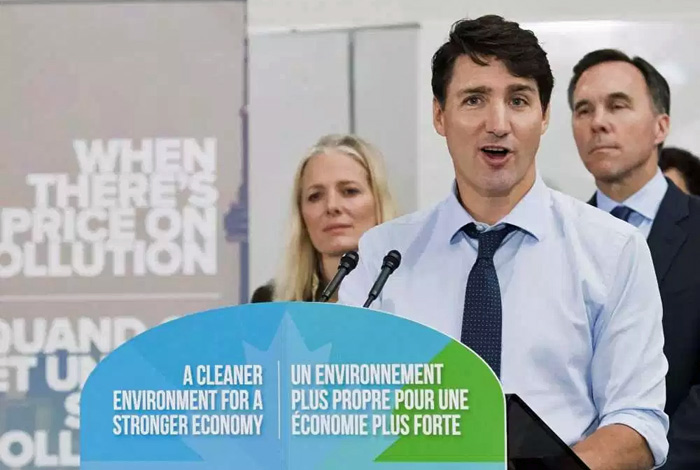I am writing this April 1, the day the federal carbon tax came into effect. As I went around my usual activities today, I was surprised by the number of comments I heard and read that indicate that folks think we have crossed a significant threshold. I think I agree with these folks, but not for the reason most folks put forward. The comments I came across were to the effect that this tax is going to hurt us. I don’t think it will.
The significant threshold we’ve crossed is that we are beginning to tax the resources of nature that we consume. We are beginning to tax those activities that impoverish the planet. It’s a good trend, and let’s just hope it continues.
Let’s just review the logic behind a carbon tax. Very basic economics says that in the production of anything, from an ocean liner to a hair cut, there are always three inputs: labour, capital and the resources of the planet. There are no exceptions. The entrepreneur’s task is to combine these three inputs as efficiently as possible to produce the desired good. Labour can be replaced through automation, ie capital. Machines can be replaced by labour. Labour can be replaced by machines burning oil. Oil burning machines can be replaced by labour. It will be the relative cost of these three inputs that will determine how the entrepreneur combines them.
Through taxation, government has a hand in pricing these inputs. A tax on income will increase the price of labour, and encourage the entrepreneur to use less labour but more capital and resources. A tax on resources will increase the cost of that resource and encourage the entrepreneur to use more labour and capital.
The intent is that the carbon tax will increase the price of oil, but not only the price of oil, but also the price of all good made with oil energy. The intent is that those of us driving cars will be more reluctant to buy gasoline, and also that entrepreneurs manufacturing widgets will use less oil in their production process and more labour and capital. The intent is that the carbon tax will incentivize car buyers to buy more efficient, smaller cars or electric cars. The intent is to motivate home owners to pay greater attention to what it costs to heat their house.
Will this new carbon tax have this effect? Unfortunately I don’t think so. It’s too timid. $0.045 per litre? Nobody will change what they do if that is the extent of the motivation.
But think of what life would be like if we had a massive tax shift, from taxing income to taxing resource consumption. The amount of money in the tax payer pool would be the same. As a nation we would not be worse off. No, we would be better off (and future generations would be much, much better off). The tax shift, if done right, would result in the same disposable income in the hands of the taxpayer, because for every dollar gained by taxing oil consumption, there would be an offset in reduced income tax or rebate to tax payers.
Of course there would be winners and losers. The winners would be those families whose lifestyle results in little oil consumption – their vacations are close to home, they live in small home, they walk or cycle to work, etc. Winners would be businesses that are more labour dependent and less oil dependent.
The losers would be families whose lifestyle results in high oil consumption – exotic vacations, long commutes, big houses. Losers would be businesses that are more oil dependent. But these families and businesses would now have an incentive to adjust to a less oil dependent lifestyle, and if that tax shift is substantial, adjust they will!
In order to avoid calamitous climate change and significant poverty for future generations, we need a massive change in our lifestyle, where we find ways of prospering with much reduced oil consumption. This change in lifestyle does not equate to sacrificing prosperity. This new carbon tax alone will not precipitate this massive lifestyle change, but it is a step in the right direction.




